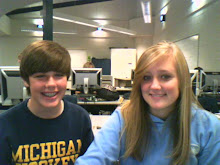The Rwandan Genocide. Who was responsible? There isn’t really an answer to that question. The only answer is who the blame is given. Belgium played a big part. They first contributed to the separation of Hutus and Tutsis by giving them identity cards. Did they expect everyone to get along? United Nations. They were supposed to be the ones uniting people across the globe but when it came down to it, they wouldn’t send any troops in to help save innocent lives from being taken. United States. A very large world power. But when CNN had the slaughtering that was going on on TV, all they did was turn their heads and look away. Juvenal Habyarimana. Brainwashing innocent people, offering land, food, and money, and broadcasting on the radio that if they didn’t kill the Tutsis that they would be killed. Romeo Dallier. He did nothing but stand around because the United Nations wouldn’t give him and troops. Paul Kagame. Leader of the Rwandan Patriotic Front, a rebel group formed to fight against the Tutsis. Interahamwe. A group made by Juvenal that he brainwashed, gave weapons, and threatened.
From many standpoints, the blame can be given. There isn’t one specific group. The genocide was wrong, and if other countries had tried to help stop it, it could’ve been a lot different. The debate we had in class helped me see this. When each country was asked questions, and made accusations, it really showed the good and the bad. If Belgium never gave out the name cards, none of this would be possible. Although other countries could’ve stopped it. During the debate, I learned a lot more about what really happened. I liked being able to talk about what happened, and hear each group’s opinion of who started everything. What I heard was that the Tutsis were upset because they were driven out of their country, and the Hutus were upset because the Tutsis were trying to take away power from Juvenal. Once Juvenal was killed, the war should’ve stopped. In reality, it couldn’t, because the Interahamwe were brainwashed and the RPF were still very active, along with Paul Kagame and the FAR. I’m very glad we got a chance to learn about this, because it opened my eyes to how our country shouldn’t take some problems over another. If they want to help, it shouldn’t matter where it is, as long as everything is okay.
Friday, November 20, 2009
Thursday, November 12, 2009
The American Scholar
Emerson’s argument in “The American Scholar” about American society still holds true today.
One reason Emerson’s argument still holds true is people are known for their occupation, and not who they really are. Over the summer, I was at a wedding and when people introduced themselves they would say things like, “Hello, I’m Dan and I’m a lawyer." Why people are dependant on their jobs? No one really knows. People also specialize in one thing, which causes them not to broaden their horizons.
Another reason Emerson's argument still holds true is that people only know how to do one thing, so when they are put into difficult situations they have nothing to fall back on. In Emerson's article, he says "Man is not a farmer, or a professor, or an engineer, but he is all."
One reason Emerson’s argument still holds true is people are known for their occupation, and not who they really are. Over the summer, I was at a wedding and when people introduced themselves they would say things like, “Hello, I’m Dan and I’m a lawyer." Why people are dependant on their jobs? No one really knows. People also specialize in one thing, which causes them not to broaden their horizons.
Another reason Emerson's argument still holds true is that people only know how to do one thing, so when they are put into difficult situations they have nothing to fall back on. In Emerson's article, he says "Man is not a farmer, or a professor, or an engineer, but he is all."
Subscribe to:
Comments (Atom)
